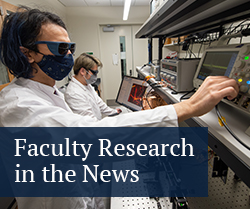
Neurodevices and Neurotechnologies
The neurodevices and neurotechnologies research realm involves the development of materials to interface with or reconstruct the brain and the peripheral nervous system; the development of devices, techniques and systems to interface with, measure, and alter brain function; and the design and fabrication of devices that mimic neural function.
Research examples:
- Development of biodegradable/bioabsorbable materials for interface coatings, nerve graft conduits, and craniofacial reconstruction (Jian Yang)
- Bioprinting of neural constructs and for cranial and/or tissue reconstruction (Ibrahim Ozbolat)
- Fabrication of wireless devices for neural interfaces (Mehdi Kiani)
- Assistive technologies, communication interfaces (e.g. brain computer interfaces), and telehealth/telemonitoring for those with a motor movement disability, especially those with amyotrophic lateral sclerosis (Andrew Geronimo)
- Ultralow power neuro-mimetic devices built from 2D materials (Saptarshi Das)
- Ultra-thin wearable devices for biomonitoring (Huanyu “Larry” Cheng)
- Ethical use of and access to neurotechnologies (Laura Cabrera)
- Technology development for single-cell genomics, cell type-specific gene targeting, and identification of brain cell types from single-cell transcriptomic data (Anirban Paul)
- Development of ultrasonic techniques for probing brain state and brain dynamics, including photoacoustic, ultrasonic elastography-based, and Doppler-based — or functional ultrasound — imaging (Sri-Rajasekhar Kothapalli)
- Development of multi-modal neuroimaging methods that integrate functional MRI, electrophysiology, optogenetics and chemogenetics (Nanyin Zhang)




